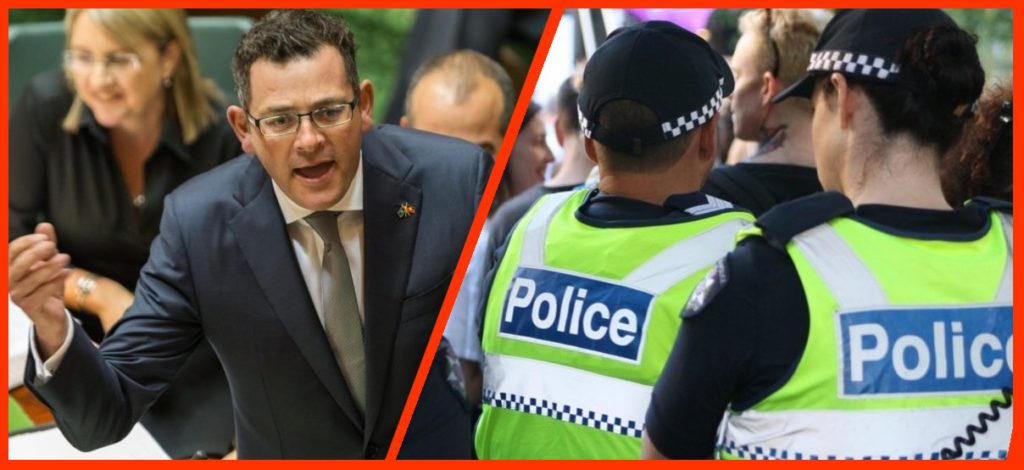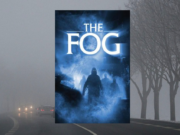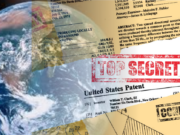
[The Human Rights Law Centre published this press release on 7 September, 2018. It reminds us of the Chinese authorities announcing their ambitious Social Credit System (SCS) by 2020 — a proposed system designed to value and engineer better individual behaviour by establishing the scores their citizens, and rewarding the “trustworthy” and “punishing the disobedient”. Has anyone seen the ‘Black Mirror’ episode?]
by HRLC
The Andrews Government has pushed divisive anti-association laws through the lower house of Parliament today (7 September, 2018). The laws will give police excessive powers to issue ‘anti-association notices’, telling people – including children as young as 14 – who they can and can’t be friends with or spend time with.
Human rights advocates, lawyers and community workers all say that these laws are an attack on our democratic rights and neither politicians nor police officers should have a role in deciding who people can and can’t be friends with.
Ruth Barson, a director of legal advocacy at the Human Rights Law Centre, said that the laws are senseless, dangerous and a sign that Premier Andrews is pandering to Matthew Guy’s toxic law and order agenda.
“We should all be free to decide who we spend our time with and who we want to be friends with. Every single Victorian should be worried about these laws because they’re excessive and ripe for abuse. Such laws belong in a police state – not the connected, harmonious community that we all want Victoria to be,” said Ms Barson.
The new anti-association laws are fundamentally different to existing laws in the following key ways:
- Children are now caught up in the scheme: Anti-association notices can now be given to children as young as 14 years. The notices can prevent children going to the movies, playing sport, talking on line or spending time with extended family members.
- It is far easier for police to issue a notice: Police are no longer required to consider whether the issuing of a notice will actually prevent serious crime. Police will only have to show that the person receiving the notice has spent time with someone who has been convicted of a particular offence.
- There are far less safeguards: There is no requirement for police to consider whether the association is for non-criminal purposes such as rehabilitation, friendship, support, education, sport any other legitimate activity; and
- The laws operate retrospectively.
Meena Singh, Legal Director at the Victorian Aboriginal Legal Service, said that the community is strongly opposed to such harmful laws.
“Children thrive when they’re connected to community, family and friends, but this regime will do the opposite. These short-sighted laws will isolate and stigmatise young people. They will unfairly target and trap Aboriginal children in the quicksand of the criminal justice system. Aboriginal people are already over policed in the community. This legislation will increase the scrutiny on Aboriginal people living their lives, particularly when engaging with family, culture and community,” said Ms Singh.
Similar laws were introduced in NSW and examined by the NSW Ombudsman. It was shown that police used the powers in a racially discriminatory way, with Aboriginal and Torres Strait Islander people hit hardest. The NSW Ombudsman also found that more than three quarters of the notices issues to children and young people were unlawful.
The Law Institute of Victoria (LIV) President, Belinda Wilson, said the LIV was concerned the laws breach the human rights of all Victorians.
“These laws breach the privacy of Victorians and take away some of our most fundamental rights. These laws are plainly incompatible with the Victorian Charter of Human Rights and Responsibilities,” said Ms Wilson.
Melanie Poole, Director of Policy at the Federation of Community Legal Centres, said the passing of these laws shows that the Victorian Government is upending our basic human rights in an attempt to appear tough on crime.
“Victorians certainly don’t need politicians dictating who we can be friends with or what we do in our private lives. We should be free to spend time with whoever we want, without the risk of police intervention and prison. These laws are a shocking and dangerous erosion of our civil liberties.”
For interviews call: Michelle Bennett, director of communications, Human Rights Law Centre, 0419 100 519






























I need to read the legislation. One presumes that there are some exceptions.
I trust (?) that associating with some ‘ Victorian’ government politicians or some Victorian relatives is now a retrospective crime.
Thank God That Ned Kelly was a not a relative and that I did not attend his burial.
🤣
Your sarcasm has been noted and recorded in the data base along with your decrease in ‘social credit’.
Terry,
You are on.
Sarcasim at twenty paces.
Phillip street at sunrise tomorrow.
I like your dark humour, Terry.
Where do these morons, alternatively known as politicians get their advice from? Answer:
The United Nations Organisation, otherwise characterised as the One World Government.
My “social credit” score, nil.
How about the “social credit” score of those politicians and public servants who planned the Port Arthur Massacre? Surely their score is, minus 1,000,000.
Don’t forget this is retrospective legislation.
This moron rides around town with an armed escort – I wonder why.
He worries about his associations.
Ned and Terry and James, I am not clear on why the human rights org is making a press release. Isn’t there a method by which new legislation is first vetted by governmental HR bodies?
You too.
Sunrise tomorrow!!
as the fascist government takes hold the government did not like ABC journalist program on corporation revelations, the CEO got sacked through Canberra’s policies.
Are their other explanations for Guthrie’s departure?
OK, Victorians, you see that the bill passed only the Lower House. Get busy to see that the Upper House rejects it.
It is your duty as Gumshoers. No pay wall here, just a strenuous Duty Wall.
I’m wondering if it would help for all the states to have new names. Qld and Vic are for the British monarch and NSW is for the old country. Tassie is for old man Abel, and the other two are a bit lacking in sparkle: South Australia and Western Australia.
Sometimes a name helps.
“Let’s kick this bill from the Upper House of …….”
Just think, the west-coast state of Canada still calls itself British Columbia.
Here’s a list of possible names for us, starting clockwise from Queensland and thinking of things like this new Anti-Association bill and the Child Protective torturism:
North Grovelly, East Grovelly, Southeast Grovelly, South Grovelly, Western Grovelly, and Off-shore Supergrovelly.
Hat’s off to ye, Martin!
well that made me spit my coffee out through my nose tee hee
I agree! The names given to our states and territories by those deemed to have that say, are in no way inspirational, imaginative or even truly reflective in their title, and nor are they permanent as to the stamping of them.
I’m all for change, if change can be proven that it is not for idealistic purposes and for purposes of national pride.
well when do you as voters take responsibility for who you vote for ??????.
Winston Churchill once quipped, or uttered words to the effect of: ‘Many believe that Democracy is probably the best of some very bad systems of government, that is until one gets to spend just five minutes with the average voter.’
The voter in most cases will always get the government they deserve.
churchill, ol kabbalah hands himself. freemason like hitler, rudolf hess might have been too, but to pragmatic and didn’t get the game.
A vote is also a consent. By entering into the competition a voter agrees to the rules of the game. And the rules are simple: whoever gets the most votes wins and can do what they like. If that winner is not the person or party a voter voted for they have no fall back because they accepted that risk when they voted/consented. Thus a voter forfeits their right to complain. Simple. George Carlin gave a good insight into the game. And people laughed … all the way to the polling booth.
consent by duress is invalid (Australian Rules of vote). The voter here can be off the hook if they call it so.